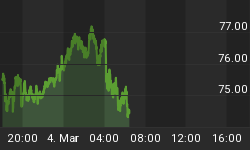Market Watch is reporting Citigroup shares drop as dividend is put in doubt.
Citigroup shares tumbled more than 6% in afternoon trading Thursday amid new concerns that the financial services conglomerate may not be able to support its hefty dividend payout. In the near term, Citi (C) may have to raise more than $30 billion by either selling off assets, slashing its dividend, raising capital or resorting to a mix of these measures, analysts at CIBC World Markets said.
"Based upon our thesis that over the near-term Citigroup will be forced to sell assets, raise capital or cut its dividend to shore up its capital ratios, we believe the stock will be under significant pressure and could trade into the low $30s," according to CIBC.
Richard Bove, an analyst with Punk Ziegel & Co., doesn't dispute that Citigroup has issues, but solvency is not one of them, he said. Citi's had a profit of $13.6 billion and it had net free cash flow of $18 billion through the first nine months of 2007. Bove also said Citi has $240.8 billion in liquid trading account assets that can be used for liquidity.
"These numbers indicate that this bank is both liquid and well-capitalized," Bove wrote. "At the end of the third quarter, Citigroup posted $2.355 trillion in assets. This was more than any other American bank and possibly more than any bank in the world."
Notice how Bove cleverly pointed out the asset side of the equation while conveniently forgetting about liabilities. Let's rework Bove's statement to see the other side of the story.
"At the end of the third quarter, Citigroup posted $2.227 trillion in liabilities. This was more than any other American bank and possibly more than any bank in the world. A mere 5.4% decline in the value of Citigroup's assets would make Citigroup insolvent."
Citigroup's assets look great in a vacuum. However, those assets do not look so great in relation to liabilities. Leverage has never been greater, and much of that leverage is now in exactly the wrong places: residential and commercial real estate.
Citigroup CEO Chuck Prince's next "dance step" is likely to be out the door.
How Good is Debt Insurance?
Some think this debt is insured. For that, let's take a look at Ambac (ABK).
Ambac Financial Group, Inc., through its subsidiaries, provides financial guarantee products and other financial services to clients in the public and private sectors worldwide. It operates in two segments: Financial Guarantee and Financial Services. The Financial Guarantee segment offers financial guarantee insurance and other credit enhancement products, such as credit derivatives for public finance and structured finance obligations. It also provides financial guarantees for bond issues and other forms of debt financing.
Ambac (ABK) Daily Chart

For an article on financial shenanigans at Ambac please see Stock Buybacks: A Good Thing Or Slipped DISCs?
Debt insurance is only as good as the solvency of the guarantor. The market is starting to question the value of those guarantees. For additional proof you might want to consider looking at a chart of mortgage guarantor MBIA (MBI).
MBIA (MBI) Daily Chart

Notice today's selloff in Bank of America (BAC) Citigroup (C), Countrywide (CFC), JP Morgan Chase (JPM), Washington Mutual (WM), Corus Bank (CORS), Bank United (BKUNA), etc. This selloff is not over a possible dividend cut at Citigroup, profit taking, diminished odds of further rate cuts or any other thing the talking heads might be saying.
Solvency is the issue here, and I am not just talking about Citigroup. I am talking about solvency of the system itself. Rate cuts fueled this mess. Rates cuts cannot be the answer.















